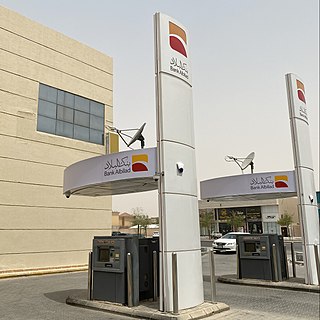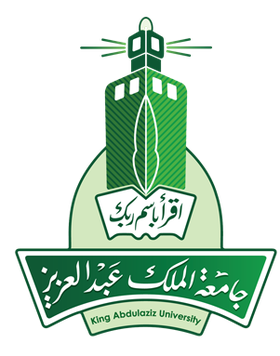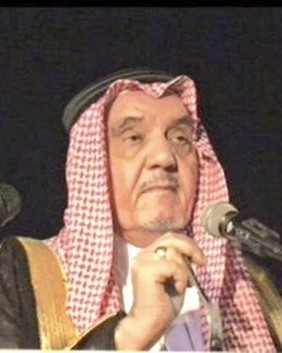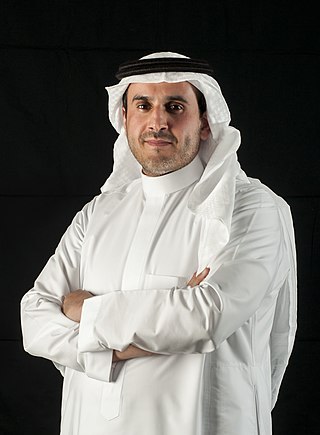
Al-Haramain Islamic Foundation (AHIF) was a charity foundation, based in Saudi Arabia. Under various names it had branches in Afghanistan, Albania, Bangladesh, Bosnia, Comoros, Ethiopia, India, Kenya, Malaysia, the Netherlands, Nigeria, Pakistan, Somalia, Tanzania, and the United States, and "at its height" raised between $40 and $50 million a year in contributions worldwide. While most of the foundation's funds went to feed poor Muslims around the world, a small percentage went to Al-Qaeda, and that money was "a major source of funds" for the terrorist group. In 2003, Saudi authorities ordered Al-Haramain to shut down all overseas branches, and by 2004 Saudi authorities had dissolved Al-Haramain. However, US intelligence officials believed it had reopened branches under new names.
The 20th hijacker is a possible additional terrorist in the September 11 attacks of 2001 who, for unknown reasons, was unable to participate. The 20th hijacker, though not present during the actual attacks, is said to have been deeply involved in the preparations. There were many variations of the 9/11 plot, with the number of terrorists fluctuating with available resources and changing circumstances. In the end, there were 19 hijackers: three of the planes were taken over by five members each and the fourth was hijacked by four people. The latter plane, United Airlines Flight 93, crashed into a field near Shanksville, Pennsylvania, due to the resistance from passengers before it could reach its target in Washington, D.C.
Abd al-Aziz, frequently also transliterated Abdul-Aziz, is a male Arabic Muslim given name and, in modern usage, surname. It is built from the words ʽAbd, the Arabic definite article and ʽAzīz "Almighty". The name is commonly abbreviated as "ʽAzīz". The name means "servant of the Almighty", al-ʽAzīz being one of the names of God in Islam, which give rise to the Muslim theophoric names.

Sheikh Sulaiman bin Abdulaziz Al Rajhi is a Saudi Arabian corporate figure and billionaire. As of 2011, his wealth was estimated by Forbes to be $7.7 billion, making him the 120th richest person in the world.

Bank Albilad is an Islamic Saudi bank established in 2004.

Saleh Abdullah Kamel was a Saudi billionaire businessman. He had a net worth estimated at US$10.6 billion, as of March 2017. He was the chairman and founder of the Dallah al Baraka Group (DBHC), one of the Middle East's largest conglomerates. He was also the chairman of the General Council for Islamic Banks and the Jeddah Chamber of Commerce.

Prince Mohammad bin Abdulaziz International Airport or Medina Airport is a regional airport in Medina, Saudi Arabia. Opened in 1950, it handles domestic flights, while it has scheduled international services to regional destinations such as Cairo, Dubai, Istanbul and Kuwait City. Medina Airport also handles charter international flights during the Hajj and Umrah seasons. The Pilgrims for Hajj and Umrah can enter Saudi Arabia through this airport or through Jeddah Airport only. It is the fourth busiest airport in Saudi Arabia, handling 8,144,790 passengers in 2018.

Sheikh Saleh Abdul Aziz Al Rajhi was a Saudi businessman and philanthropist who founded the Al-Rajhi Bank, the largest Islamic banking institution.

King Abdulaziz University (KAU) is a public research university in Jeddah, Saudi Arabia. Established in 1967 as a private university by a group of businessmen led by Muhammad Bakhashab and including author Hamza Bogary, it was named after the country's first monarch, King Abdulalziz ibn Saud. It was converted into a public university by King Faisal in 1974 and is ranked among the most prestigious academic institutions in Saudi Arabia.
Khalid bin Mahfouz was a Saudi Arabian billionaire, banker, businessman, investor and former chairman of the National Commercial Bank (NCB). Khalid is the son of Salem Bin Mahfouz, a Saudi entrepreneur who rose from being a small-time moneychanger to becoming the founder of the NCB, the first private Saudi bank.
Hamza bin Laden was a Saudi Arabian-born key member of al-Qaeda. He was a son of Osama bin Laden. On 25 July 2019, it was claimed by the American media that he was killed by a U.S. airstrike on the Afghanistan–Pakistan border. In 2024, unconfirmed media reports claimed that he was still alive and a senior leader of al-Qaeda.

Yassin Abdullah Kadi is a Saudi Arabian businessman. A multi-millionaire from Jeddah, Kadi trained as an architect in Chicago, Illinois. He is the son-in-law of Sheikh Ahmed Salah Jamjoom, a former Saudi Arabian government minister with close ties to the Saudi royal family.
At around 9:30 pm on September 11, 2001, George Tenet, director of the Central Intelligence Agency (CIA), told President George W. Bush and U.S. senior officials that the CIA's Counterterrorism Center had determined that Osama bin Laden and al-Qaeda were responsible for the September 11 attacks. Two weeks after the terrorist attacks on September 11, 2001, the Federal Bureau of Investigation connected the hijackers to al-Qaeda, a militant Salafist Islamist multi-national organization. In a number of video, audio, interview and printed statements, senior members of al-Qaeda have also asserted responsibility for organizing the September 11 attacks.

Mohammed bin Faisal Al Saud was a Saudi prince and businessman. He was a son of King Faisal and was one of the pioneers in the establishment of Islamic banking and Islamic insurance.
The following lists events in 2014 in Saudi Arabia.
Qatar has been accused of allowing terror financiers to operate within its borders, which has been one of the justifications for the Qatar diplomatic crisis that started in 2017 and ended in 2021. In 2014, David S. Cohen, then United States Under Secretary of the Treasury for Terrorism and Financial Intelligence, accused Qatari authorities of allowing financiers who were on international blacklists to live freely in the country: "There are U.S.- and UN-designated terrorist financiers in Qatar that have not been acted against under Qatari law." Accusations come from a wide variety of sources including intelligence reports, government officials, and journalists.
Since the September 11 attacks in the United States in 2001, allegations of Saudi government involvement in the attacks have been made, with Saudi Arabia regularly denying such claims.
Terrorism in the United Arab Emirates describes the terrorist attacks in the United Arab Emirates, as well as steps taken by the Emirati government to counter the threat of terrorism. Although terrorist attacks are rare, the UAE has been listed as a place used by investors to raise funds to support militants in Afghanistan, Pakistan, and the financing of the September 11 attacks. Businesses based in the UAE have been implicated in the funding of the Taliban and the Haqqani network. In the 72nd session of the UN General assembly in New York, UAE foreign minister Abdullah bin Zayed Al Nahyan affirmed the United Arab Emirates policy of zero tolerance towards terrorism financing.

Naif Saleh Abdulaziz Alrajhi, a Saudi entrepreneur, investor, philanthropist and businessman. He is the Founder and CEO of Naif Alrajhi Investment.

Sheikh Sulaiman Al-Rajhi Mosque, simply known as Al-Rajhi Mosque, is a Friday mosque in the al-Jazirah neighborhood of Riyadh, Saudi Arabia. Opened in 2004, it is the largest mosque in Riyadh and one of the most popular landmarks of the city besides being considered among the largest mosques in Saudi Arabia and the Arab world. It is named after the Saudi businessman and billionaire Sulaiman bin Abdulaziz al-Rajhi, who primarily funded the mosque's construction.











